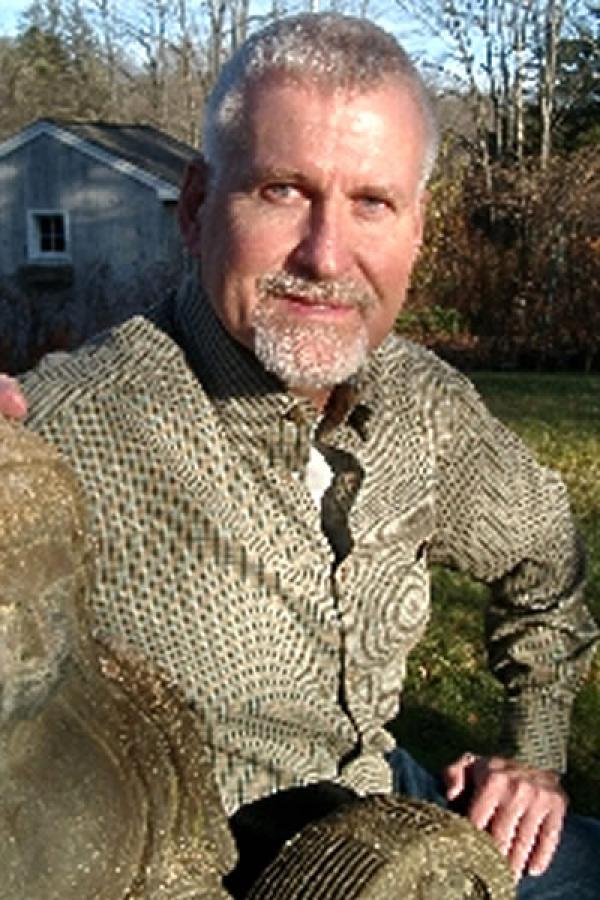Richard Foerster

Photo by Douglas Taylor
Bio
Richard Foerster was born in 1949 in the Bronx, New York, the son of German immigrants, and holds degrees in English Literature from Fordham College and the University of Virginia. He is the author of six poetry collections: Sudden Harbor (1992) and Patterns of Descent (1993), published by Orchises Press; Trillium (1998), Double Going (2002), and The Burning of Troy (2006), published by BOA Editions; and Penetralia (2011), published by Texas Review Press. He has been the recipient of numerous honors, including the "Discovery"/The Nation Award, Poetry magazine's Bess Hokin Prize, a Maine Arts Commission Fellowship, and the 2000/2001 Amy Lowell Poetry Traveling Scholarship. He was previously awarded a NEA Literature Fellowship in 1995. Since the 1970s his work has appeared widely in magazines and anthologies, including The Best American Poetry, the Kenyon Review, TriQuarterly, The Gettysburg Review, Boulevard, The Southern Review, and Poetry. He has worked as a lexicographer, educational writer, typesetter, teacher, and as the editor of the literary magazines Chelsea (1994-2001) and Chautauqua Literary Journal (2003-2007). For the last 25 years he has lived on the coast of southern Maine.
Author's Statement
At my college graduation, when my Milton professor asked about my goals in life and I replied "poet," he leaned close and whispered, "Foerster, never call yourself a poet. . . . Let others do that for you." That was 40 years ago and good advice. More recently, as the recession took hold and forced me, like so many millions, to adapt to straitened circumstances, a family member implied that I've been wasting my time in pursuit of poems rather than a secure retirement. For her, poetry must seem a kind of financial hell that I have foolishly, if not proudly, cast myself into. And so I'm profoundly grateful to the panelists who've given me this honor on behalf of the nation and affirmed me as "poet," and to all those behind the scenes at the NEA who make the fellowship program happen, and to our legislators who see the worth in encouraging individual artists to persist, to aspire . . . and feel appreciated for the work they do.
Bodies: The Exhibition
Gunther von Hagens, . . . the first to place dissected, silicone-treated cadavers on public display, . . . denied [using] the bodies of [Chinese] political prisoners . . . but did return a batch of cadavers to Dalian after two were found with bullet holes in the backs of their heads. . . .
--Miami New Times, 10/5/06
On entering this crypt of imagination
the mind's entombed a moment
in an airless afterlife any pharaoh
might have envied: the bodies are
plasticized beyond decay, poised,
though naked and flayed, as objects
of awe, their dissected muscles feathered
and flowering into scentless bouquets
that we can embrace, snickering at the poses
some Barnum has devised to ease
the shock of such brutal perfection:
athletes at their games, a scholar bent
above a desk, his skull whittled
like a Wiffle ball to expose the brain.
One torso's arteries, alizarin-dyed, fan
into frozen coral colonies, while his penis
floats, devoid of flesh; the shaft, just three
minims, like saffron threads, calligraphing
the delicate orchid of his glans. Though natural
death is claimed for each of these
unclaimed, nameless citizens of Dalian,
they seem too robustly animate, too
undiseased to allay unease. And in a room
of becomings, backlit fetuses burgeon
month by month, their bones a shadow play
of gray and rose tattoos cast upon translucent skin,
but here the original stain's exposed in the cleft
spine, hernia, or harelip of these never-borns, now un-
mortalized and immune to fear and the obscene
wonder we cannot help but harbor
about the provenance of the vital dead.
("Bodies: The Exhibition” from Penetralia, published by Texas Review Press, copyright ©2011 by Richard Foerster; First appeared in Poet Lore, reprinted by permission of the author)

